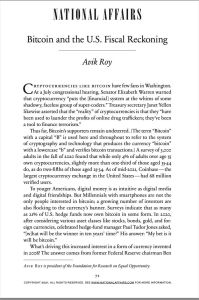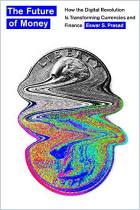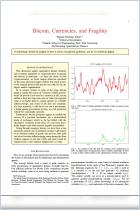
Recommendation
As economies enter post-pandemic times, consumers and companies are facing price increases, and some investors are deploying capital into bitcoin as a means of protecting their purchasing power and financial holdings. Commentator Avik Roy assesses the opportunities for bitcoin – as a viable store-of-value asset and an inflation mitigation tool – in the context of current US fiscal conditions. Corporate executives, business owners and bitcoin stakeholders will appreciate this informative and wide-ranging essay on the importance of digital assets.
Summary
About the Author
Avik Roy is president of the Foundation for Research on Equal Opportunity.
Learners who read this summary also read
Video
Book
Book
Report

















Comment on this summary or Comenzar discusión